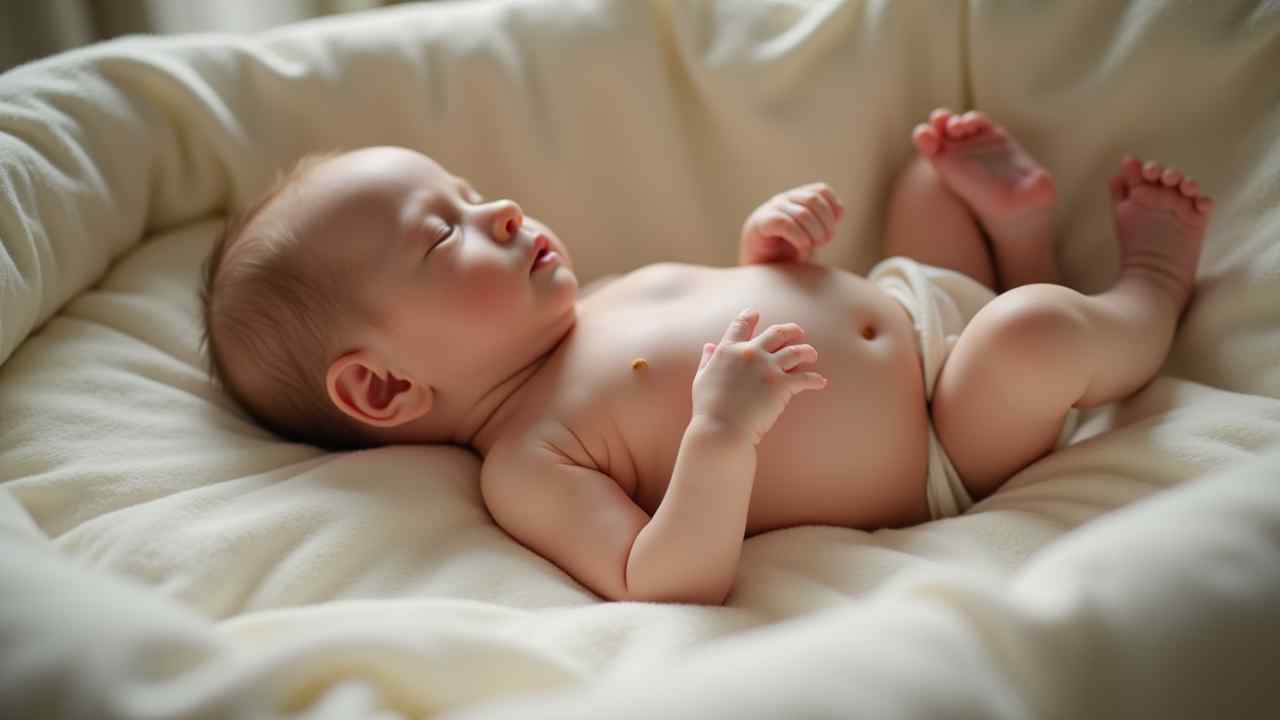
👶 Why is Your Newborn Breathing Fast During Sleep? A Parent's Guide
👶 Why is Your Newborn Breathing Fast During Sleep? (A Parent's Guide) 👶
As a new parent, you spend a lot of time watching your baby sleep. You check on their every little movement and sound. During one of these checks, you might notice something that seems alarming: their breathing is very fast and irregular. This can be a source of significant anxiety.
So, why is your newborn breathing fast during sleep? The first and most important thing to know is that, in the vast majority of cases, this is completely normal. A newborn's breathing pattern is very different from an adult's. It is often fast and erratic.
This guide will explain the normal reasons for this behavior. We will also outline the rare but important warning signs of a real problem. Let's put your mind at ease. ✅
Disclaimer: You know your baby best. If you are ever genuinely concerned about your baby's breathing, trust your instincts and call your pediatrician or seek medical help immediately.
🤔 What is "Periodic Breathing of the Newborn"?
This is the most common reason for your newborn breathing fast during sleep. Periodic breathing is a completely normal and harmless breathing pattern in new infants. It is a sign of their immature but developing respiratory system.
It looks like this: your baby will breathe quickly for a short period. Then, their breathing will slow down. They might even have a short pause in breathing for a few seconds (always less than 10 seconds). Then, they will start the cycle again. While it looks strange to adults, it is a textbook newborn behavior. This pattern usually disappears on its own by a few months of age.
💭 Is Your Newborn Dreaming?
Another very common cause of fast breathing is dreaming. Newborns spend about 50% of their sleep time in a stage called REM (Rapid Eye Movement) sleep. This is the active, dreaming stage of sleep. It is crucial for their incredible brain development.
During REM sleep, it is normal for a baby's physical responses to become irregular. This includes their heart rate and their breathing. You will often see other signs of dreaming at the same time, such as:
- Fluttering eyelids
- Twitching arms, legs, or face
- Small smiles or grimaces
- Muffled sounds or coos
This burst of activity and fast breathing is simply a reflection of their active dream state. It is a healthy and normal part of their sleep.
⚠️ What Are the Signs of Normal vs. Worrisome Breathing?
This is the most important part for any parent to know. While a newborn breathing fast during sleep is usually normal, you must be able to recognize the signs of true respiratory distress. The key is to look at the whole picture.
What does normal fast breathing look like?
- It happens in short bursts, not constantly.
- The baby seems peaceful, comfortable, and is not struggling.
- The baby's skin color is normal and pink.
- They can be easily comforted and are feeding well.
What are the signs of a medical problem? (Call Your Doctor)
You should call your doctor or seek immediate medical attention if you notice any of the following signs. These are red flags for respiratory distress.
- Persistent Fast Breathing: Breathing more than 60 breaths per minute consistently, even when the baby is calm and awake.
- Nostril Flaring: The baby's nostrils are flaring out with each breath, showing they are working hard to get air.
- Retractions: You can see the skin sucking in between their ribs or at their neck with each breath.
- Grunting: The baby makes a grunting sound at the end of each breath.
- Color Changes: Any bluish tint (cyanosis) around the lips, tongue, or on the skin.
Remember, a peaceful baby with occasional fast breathing is almost always fine. A baby who looks like they are working hard to breathe needs help. Trust your intuition and never hesitate to call your doctor for peace of mind. 🩺